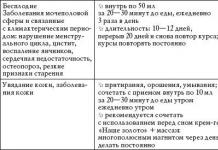Breaking up an unfinished marriage is not always as easy as one would like it to be. Its nuances and features are considered especially difficult, we will consider further.
Where to apply for divorce
The first, and perhaps one of the most important questions that worries spouses who have decided to break off their official relationship is what state bodies can help to fulfill their plans. The rights to such actions have three corresponding structures:
- Magistrate's Court.
- District court.
- MARRIAGE REGISTRY.
The whole catch is that it will not work to contact any of the above bodies. Each organization is engaged in the consideration of certain cases, so the choice of a state structure should depend on the circumstances and the nature of the relationship between the spouses.
magistrate's Court
The easiest option for breaking off official relations is the divorce procedure through the court, or rather, through the so-called magistrate's court. Such a development of events is real only if there are no disagreements between the spouses, and both parties recognize their desire to dissolve the marriage. In addition, even before filing an application, the husband and wife must independently resolve all issues and disputes related to the distribution of property. In this case, the total amount of the latter should not exceed 50 thousand rubles.
In time, the fate of the child will be decided, since the divorce procedure in the presence of minor children must fully take into account the interests of small citizens. So, during the meetings will be determined:
- With which of the parents will the child (or children) live in the future.
- The amount of alimony that one of the spouses will be required to pay.
- How will a parent living separately be able to see their child.
Appeal to the district court
If the couple cannot reach a unanimous decision about the future of the marriage, then it is best for her to contact the district judicial authority. This will help the spouses legally agree on the division of joint property (its amount should be more than 50 thousand rubles), as well as on which of them the children will remain with. The divorce procedure through the court in this case can be quite lengthy, since it is not always possible to find a compromise between the applicants the first time. Often, only one of the spouses submits to the state agency, while the second refuses to give consent. In this case, the court gives the couple additional time to think: the so-called conciliation period.

Divorce proceedings through the registry office
Of course, it will be better if the procedure is carried out without going to court. After all, consideration of cases at meetings takes a lot of time. Another thing is when you can apply to the regional registry office. Then the spouses simply leave their application in the right office, and after a set period they come for the long-awaited seals. However, the procedure for divorce through the registry office is not always possible. Termination of unions in this order occurs only in the presence of special circumstances, namely:
- If one of the spouses has a criminal record for more than 3 years.
- If the husband or wife is in the status of a missing person.
- If the court officially recognized one of the spouses as incompetent.
According to the laws of the Russian Federation, if the situation in the family falls under any of these exceptions, a husband or wife can divorce their other half, even when the couple has children in common. Moreover, the age of the child in this case does not play a role.
Documents required for divorce
Both the wife and the husband can apply to the appropriate judicial authority with a test to dissolve the marriage. The procedure for filing an application for divorce is as follows: the spouse (or both spouses) collects a list of all the documents necessary for the process and submits them for consideration. To file a petition for termination of official relations in the presence of children under the age of 18, the plaintiff must present the following papers:
- A copy of the marriage certificate.
- Receipt confirming the payment of state duty.
- Copies of passports of both spouses.
- A statement indicating the reasons for the termination of official relations.
- A copy of the child's birth certificate (if there are several children, then you must submit a document for each of them).
As additional information, agreements on the division of property and a written decision of both parties may be attached, with which of the parents their children will live. Of course, the divorce procedure in the presence of minor children in this case will be much easier.

How is the divorce process
The more disputes have accumulated between the spouses, the longer the court will consider the possibility of dissolving their marriage. After all, first of all, the legislation provides for taking into account the rights and interests of children brought up by a couple. In this situation, they turn out to be third parties who may well suffer from the results of their parents' war. Therefore, as a rule, it is quite lengthy and stretches over several stages.
How the divorce process works is described below:
- First, the plaintiff submits to the judicial authority.
- Then the date of the first meeting is set, the results of which determine the future fate of the spouses.
- If the previous two stages were not enough to find a compromise between the parties, then the court makes a decision to continue the process.
It is worth noting that the divorce process may be completed after the first meeting, or it may stretch for an indefinite number of subsequent ones. During this time, a decision should be made on the division of joint property and the further upbringing of children.

How long does it take to divorce a child
The shortest period that can pass from the filing of an application by the spouse to the complete dissolution of the marriage is 1 month and 10 days. This is explained by the fact that after the execution of a formal petition by the plaintiff, at least 4 weeks must pass before the first meeting. If the agreement between the parties was reached immediately, and the judge agreed to break the family relationship, then you should wait another 10 days until the divorce officially takes effect. Most often, the divorce procedure in the presence of children is not so simple - in the process of considering the case, disputes arise between the spouses, so the decision is postponed indefinitely. If one of the parties expresses its unwillingness to dissolve the marriage, then the court has the right to give the couple time for reconciliation, which cannot be more than three months.
Within 10 days after the verdict on the possibility of registering a divorce, either spouse is allowed to appeal this decision. If this did not happen, then after the specified time, the relationship of the couple becomes officially broken.
The fate of the child after the dissolution of marriage
If the spouses have not come to a consensus in advance about who the children will live with, then the procedure is impossible. This issue will be determined by the courts. At the same time, the decision of a representative of a state body is influenced by such points:
- The opinion of each of the parents about the independent upbringing of the child.
- Financial capabilities of both parties.
- Lifestyle and health status of spouses.
- The desire of the child.
The last point is considered the most important, since it directly takes into account the interests of a small citizen. However, the judge has the right to be interested in the opinion of the child on this issue only if the latter has reached the age of 10 years.

Communication of the child with a separate parent
Any divorce procedure in the presence of children includes an investigation into the future fate of small citizens. It must be determined without fail which of the spouses the baby will live with, and how the other parent will be able to see their child. The law of the Russian Federation establishes that both the mother and the father, regardless of the peculiarities of the divorce, after the official dissolution of the marriage, have the same rights to communicate with the child. The order of visits between the parent and the baby is either discussed by the spouses personally, or established by the court, taking into account their wishes. It is worth noting that close relatives as grandparents also have full rights to see their grandchildren.
If the party living with the child violates the terms of the agreement and prevents the other parent from communicating with the child, then the latter may file a lawsuit in court.
Features of the appointment of alimony
If the divorce procedure in the registry office does not require the resolution of such issues, then the trial usually includes a stage regarding the establishment of payments from the spouse planning to live separately. Child support must be at least a quarter of the parent's income. If there are two children in the family, then the payments increase to a third of the spouse's earnings. Three or more offspring should account for at least half of his budget.

Divorce with a child under 3 years old
On the part of a man, an application can only be submitted if the baby is already 1 year old. Up to this point, divorce is considered possible only if the initiative is taken by the mother of the child. In any case, the divorce procedure in the presence of minor children under the age of 3 years is strictly judicial. At the same time, in order for the plaintiff's application to be approved by state bodies, the written permission of the defendant to dissolve the marriage is required. If the family does not live under the same roof, then this detail may not be required.

When can a marriage not be dissolved?
As mentioned earlier, the age of the child, if the latter is less than one year old, may be the reason for refusing to start the divorce proceedings. The answer of the court will be similar in the event that the wife is at any stage of pregnancy. At the same time, it should be clarified that these laws apply only to the rights of men. A woman is quite capable of filing for divorce, regardless of the age of the baby. However, some situations may fall under the exception: for example, if the spouse does not object to the dissolution of the marriage and confirms this with a written agreement, then the husband has the right to become a plaintiff.
Knowing how the divorce process works will help keep the legal process as short as possible. However, if children are involved in this, then it is better to think again, because by destroying a family, you are destroying their lives.
The birth of a child, unfortunately, does not always strengthen families, and the desire to dissolve a marriage may arise among spouses even before the first birthday of the baby. There are many reasons for this, and they are not so important. What is important is how divorce fits into the norms of current legislation and how the legal status of former family members will change if it is carried out.
Is it possible to get a divorce when the child is under 1 year old: features, limitations
The legislation of the Russian Federation protects the rights and interests of children and their mothers, creating conditions for their upbringing in a complete family, but at the same time does not force parents to live in marriage until they come of age. The restriction on divorce is only valid for one year after the birth of the child and before that, during the mother's pregnancy.
An absolute ban can only be called in relation to the father. In accordance with Art. 17 of the Family Code of the Russian Federation, a husband cannot initiate a divorce until his pregnant wife gives birth, and 12 months after that.
This provision is also relevant in cases where the biological father of the child is a completely different person. Even if this is officially established, and the paternity of the legal spouse is challenged in court, he will be able to file for divorce against the wishes of his wife only after the expiration of the established period.
The situation changes dramatically if the desire to end the marriage is mutual, or comes from the woman. A pregnant spouse has the right to file for divorce at any time, regardless of the age of the child.
Such "inequality" is explained by the vulnerable mental and, possibly, physical condition of the mother of the baby. Indeed, in connection with the fulfillment of the duties of caring for a young child, she is most often deprived of the opportunity to independently satisfy her basic needs and temporarily acquires the status of a disabled person.
In addition to the material aspect, the legislation also takes into account the moral one: the psycho-emotional state of a woman in the first months of motherhood is characterized by extreme instability. Therefore, in order to avoid the risk of a traumatic situation for the preservation of her health and the newborn, the requirements for divorce at the request of the husband are satisfied with some delay.
Until a child born in wedlock reaches 1 year of age, divorce is possible only if:
- the wife will declare it;
- The couple made a joint decision to dissolve the marriage.
How to file for divorce with a small child
When formalizing the official rupture of marital relations, the parents of a minor must remember the need to resolve a number of other issues related to joint property and, of course, a common child.
Preparatory stage
Parents of a common child before filing for divorce are advised to agree on the following points:
- Place of residence of the child. In infancy, he will be better off with his mother (except on special occasions).
- The order of communication with a parent living separately. It is important for a child to see and spend time with two parents, and this need must be taken into account at any age, unless communication with one of the parents does not violate the interests of the minor.
- The amount and frequency of maintenance paid by the estranged spouse. Alimony and other additional payments should not be lower than the minimum established by law.
- Division of joint property. According to the law (unless otherwise provided by the marriage contract), each of the spouses is entitled to exactly half of all material assets acquired in marriage. And they have the right not to divide each object in half, but to agree on their distribution according to the cost and size of their real investments.
Agreement on the first two issues listed above may be oral. But this option should be resorted to only with an exceptional level of trust between the former spouses. In other cases, it is better to state the contract in writing and, for greater reliability, certify it with a notary.
An agreement on determining the place of residence and the procedure for communicating with the child can be certified at will. And the agreement on the amount of alimony, as well as on the division of property, is drawn up at the notary without fail.
If the spouses failed to reach a consensus on the key points of the distribution of parental responsibilities and joint property, the disputed points will be resolved forcibly - in the course of judicial proceedings.
Claims for the division of property, the recovery of alimony, the determination of the permanent residence of the child and the schedule of communication with the other parent can be included in a divorce suit and considered within the same case. And they can be declared separately, after the dissolution of the marriage.
Where to go
The authority competent in the dissolution of a marriage with a child under one year old is selected based on the characteristics of a particular situation:
- Spouses who do not combine a divorce claim with claims of a property nature (except for claims worth more than 50 thousand rubles) and disputes about children, turn to a justice of the peace.
- An order for the recovery of alimony or a decision on the payment of a monthly maintenance in a fixed amount is also issued by a justice of the peace.
- A divorce involving consideration of a dispute on determining the place of residence of the child and / or the procedure for his communication with the parent living separately is carried out in the district court.
- The section of jointly acquired property within the framework of the divorce proceedings (or separately from it) is forcibly performed by the district court.
- Dissolution of marriage at the initiative of the wife of an incapacitated, missing or convicted of a crime to imprisonment for a term of up to three years, is carried out on her, regardless of the consent of the husband, the number and age of joint children.
In addition to the correct choice of the body authorized to resolve the issue, it is important to determine the territorial jurisdiction of the case.
Usually, a statement of claim is filed at the place of residence of the defendant (the person to whom the claims of the plaintiff are directed). But in this case, the divorce may be cognizable by the court at the place of residence of the wife, who in the case acts as a plaintiff.
According to paragraph 4 of Art. 29 of the Civil Procedure Code of the Russian Federation, the territorial jurisdiction has the right at its discretion (between the judicial authorities at the place of residence of the plaintiff and the defendant) to choose the plaintiff if he has a minor child with him. And most often, the mother of the newborn makes her choice in favor of the nearest magistrate or district court.
As for the out-of-court divorce procedure, the division of the registry office at the place of residence of one of the spouses or at the place of registration of the relationship is authorized to dissolve the marriage and register this event. And since only the wife can be the applicant, the right of choice belongs exclusively to her.
Procedure
Further actions of the spouse (s) will depend on the place of application for divorce.
In a court
Even if there is a mutual desire to end the marital relationship, one person must apply for a divorce. And it will be a wife, since the husband in this right is temporarily limited by law.
The claimant is required to do the following:
- Choose an authorized judicial body (determination of jurisdiction is described above).
- Make a claim.
- Prepare documents.
- Pay the state fee.
- Submit papers to court.
- To appear at the meeting on the day and time appointed by the judge (this is not necessary - you can send a request for consideration of the case in your absence or take part in the proceedings in absentia, transferring part of your authority to the representative)
- Get an extract from the court decision.
- Visit the registry office and declare the need to register a divorce.
- Pay state duty.
- Get a divorce certificate.
Clauses 8-9 are carried out by each of the spouses, and responsibility for them can be transferred by them to voluntary representatives on the basis of a written authorization (power of attorney).
Also, former spouses are entitled. But this will not save them from the need for a personal visit to the body. And since there is no need to wait for the receipt of the certificate (it is issued on the day of application), there is little point in sending an electronic request separately.
At the registry office
If the divorce will take place unilaterally, at the request of the spouse of the person serving a term of imprisonment, incompetent or declared missing, she does not need to go to court.
The applicant's actions will be as follows:
- Preparation of necessary documents.
- Visit to the civil registry office.
- Writing an application for divorce.
- Submission of an application and documents for verification to an authorized employee of the department.
- Receipt of details and payment of state duty.
- Submission of a receipt to the registry office for verification.
- Return visit to the place of application on the day appointed by the authorized employee.
- Participation in the divorce registration procedure (confirmation of one's intentions, signing papers, etc.).
- Obtaining a certificate of divorce.
An application for divorce in this case can be submitted through the Unified Portal of Public Services. This will avoid a double visit to the registry office - the spouse will need to come only after the deadline has passed, for registration and obtaining a confirming certificate.
Documentation
The positions of the mandatory list of papers are determined depending on where the divorce will take place.
What you need to take with you to the registry office:
- Identification.
- An extract from the court decision on the dissolution of the marriage (if the divorce has already been completed in court, and the former spouses only have to register it).
- A copy of the judicial act on the recognition of the spouse as incapacitated, missing, sentenced to imprisonment for a term of three years or more (if the application for divorce is filed unilaterally).
Documents for court:
- Identification.
- Marriage certificate.
- Certificate from the place of residence (if it does not match the place of registration indicated in the passport).
- Child's birth certificate.
- Receipt for payment of state duty.
According to the rules of legal proceedings, the plaintiff must make copies of the application and the documents attached to it (except for the receipt) according to the number of participants in the case.
Statement of claim
- Introductory. Contains data on the plaintiff, defendant and judicial authority - full name, address, name.
- Descriptive. It must indicate the date of conclusion (if the divorce is not by mutual consent), the date of birth of a child under one year old, the age and number of other common children (if any), the reasons for the refusal of the spouse (if he is against it), and other circumstances on which the plaintiff will base their claims.
- Pleading. Displays the meaning of filing an application - claims. There can be several of them: divorce, recovery of alimony or their appointment in a fixed amount, division of property, determination of the place of residence and the procedure for communicating with the child. The legitimacy of their position should be confirmed by excerpts from legislative acts.
- Applications. Here it will be necessary to list all the documents and materials of the evidentiary base with which the plaintiff argues his claims.
The application must be signed by the claimant. Failure to comply with this rule will result in refusal to accept it by the judge.
Sample
Download petition for divorce in the presence of a minor childApplication to the registry office
According to Art. 34 of the Federal Law "On acts of civil status" No. 143-FZ, the following information must be included in the application for divorce filed with the registry office by one of the spouses:
- Full name, place, date of birth, place of residence, citizenship of the applicant and his spouse;
- grounds for unilateral appeal (recognition of the husband as incompetent, missing, or a sentence to imprisonment);
- details of the marriage registration record;
- the passport details of the applicant and the surname that he chooses after the divorce;
- the place of residence of the manager of the property of the missing person, the guardian of the incapacitated person, or the address of the institution in which the sentenced to imprisonment for three or more years is serving a sentence.
The application at the end is certified by the personal signature of the spouse.
Sample
Download the application form in form No. 9Price
Provide for the payment of state duty:
- For filing a lawsuit in court - 600 rubles;
- For state registration in the civil registry office - 650 rubles.
The named sums are established by ch. 25.3 of the Tax Code of the Russian Federation and are not subject to change up or down. In this case, the payment under paragraph 1 is made by the plaintiff, while state registration with the registry office is paid by each of the spouses separately.
If the mother of a child under one year old applies to the registry office, bypassing the court (for the reasons indicated above), she pays only 350 rubles.
Timing
The terms of the divorce process depend on the procedure and features of its implementation.
If the dissolution of marriage is carried out through the court:
- consideration - 35 days from the date of filing a claim with the world court and 60 with the district court (maximum);
- entry into force of the decision - 30 days.
Unilateral divorce in the registry office: 1 month from the date of acceptance of the application.
In reality, the terms in the claim proceedings can be extended. This is due to possible suspensions, postponement of the date of the consideration of the case and the need to fulfill court orders. Plus, according to the law, the judge has the right to set the parties a period for a truce - up to three months. And the parents of a small child are just at risk of delaying the procedure.
But, if the interested party doubts the legitimacy of such delays, it has the right to file a private complaint or a motion to speed up the proceedings.
Arbitrage practice
The mother of a young child (Eroshina V.I.) filed a lawsuit to dissolve the marriage with Eroshin R.D. She explained her decision for personal reasons, as well as her husband's refusal to voluntarily divorce.
The judge set a date for the hearing and sent notices to the parties. However, the defendant (Eroshin R.D.) did not receive it and did not appear in the courtroom. The trial was adjourned.
The plaintiff expressed doubts about the conscientiousness of her husband, pointing out the fact of his evasion from accepting the summons. She drew the judge's attention to the meaning of Art. 119 of the Code of Civil Procedure of the Russian Federation, which allows holding a meeting without a defendant in the presence of reliable information about his absence at the last known place of residence. And confirmation of this fact was the return of the summons back to the court due to the expiration of the storage period in the post office.
Taking into account the circumstances and arguments of the plaintiff, the judge appointed a new date for the trial and within the specified period satisfied the stated requirements - dissolved the marriage and determined the place of residence of the child with the mother.
Difficulties
Difficulties in the divorce process for the most part arise in the following circumstances:
- Ambiguous consent of the wife. Since filing for divorce within a year after the birth of a child is the prerogative of the spouse, the husband is completely dependent on her consent. And it should be expressed not only in words. Irrefutable evidence of the corresponding intention is only the filing of a claim with the court. The husband needs to remember that a prior agreement does not in any way oblige the wife to file for divorce or waive the claim. And this is practically the only insurmountable complexity of the process.
- Spouse's failure to appear in court and the implementation of opposition to claims in other ways. The defendant, who does not want to reach a common agreement, may resort to all sorts of tricks in order to postpone the trial as much as possible, or go even further and put obstacles in satisfying the accompanying requirements (dividing property, determining the place of residence of the child, etc.). It is not easy to put up a worthy resistance to “skillful” distortion of facts and deliberate delay in the process of legal proceedings. But it must be done, and confidently defending one's position with the competent presentation of "strong" arguments should help.
- Unstable income of the spouse. A small child and a mother, forced to spend most of her time caring for him, have the right to count on a certain percentage of the income of the father (ex-spouse). But sometimes the allocated share is not enough to cover the minimum monthly needs of the child because the father does not have a guaranteed stable income or he conceals his real income. In such cases, at (or after) a divorce, the wife can sue her husband for a fixed amount of alimony (in the form of a fixed monthly payment).
- Refusal to divorce the mother of someone else's child. In our ban, we will not belittle the law - divorce at the request of the husband is impossible. And the fact of the presence or absence of biological relationship between the legal spouse and the child does not change the state of affairs. The only thing that a man can do in such a situation is to wait for the expiration of the prescribed period and start challenging paternity. The latter will save him from the obligation to support his ex-wife and her child. In this case, the spouse will have to prove not only the discrepancy between genetic data, but also the fact that at the time of entering data about the father into the birth certificate, he did not know that the child was not his own.
Only timely and competent response will help to successfully bypass the emerging difficulties. Ill-considered actions, as well as ignoring the problem, significantly increase the risk of developing undesirable, and sometimes irreparable consequences.
Who will the child stay with?
This global question arises between spouses one of the first. And it’s good if they manage to reach agreement on it. Otherwise, the divorced will have a dispute that will be resolved by force in court.
When forming their position regarding the place of residence of a common child, the spouses must take into account the following:
- The rights of parents are absolutely equal and the mother does not have the exclusive right to live together with the child. But in the case of a newborn baby, the cup of justice leans in her direction, for obvious reasons.
- When considering a dispute on determining the permanent place of residence of a minor, the judge first of all takes into account his rights and interests.
- It is important for a parent who wants to keep a child to present to the court the advantages of his appointment and to prove why the child will be better with him.
- The spouse living separately should be aware that he will be entrusted with the obligation of partial financial support for the child and the parent who will provide him with constant care.
Since the infant himself is not able to express his opinion about his future place of residence, the court, when making a decision, will be based on the following circumstances:
- The physiological characteristics of a newborn - at such an early age, he is very dependent on the mother, and only her extremely dysfunctional behavior or complete indifference to parental responsibilities can prompt the judge to determine the place of residence of the baby with the father.
- Living conditions of the spouses. It is important for a child, especially such a small one, to create optimally comfortable conditions for life, health and development. And a parent who is not able to provide this to him should not count on cohabitation.
- Parental health. Caring for a child requires great responsibility, moral and physical effort. Therefore, it is impossible for a newborn to remain with a parent who does not have sufficient resources for this.
- Lifestyle of father and mother. Radical upbringing measures, extremely unconventional views on the family and immoral behavior will play in favor of a parent who is far from them. And we are talking about deviations that threaten the health, moral and moral development of the child.
In other words, a baby up to a year old, when the parents divorce, by court decision, will remain with the mother, unless she expresses extreme disinterest in this or, due to poor health (physical and mental), cannot properly take care of the baby.
Rights and obligations of parents after divorce
Parental rights and obligations, unlike marital relations, do not end after the dissolution of the marriage. And this should be taken into account by every parent, regardless of whether he lives with the child or not.
The rights and obligations of the parent with whom the child remains (by a court decision or by agreement of the parties):
- Live with the child on a permanent basis at their place of residence or stay.
- Provide the conditions necessary for the life, health and comprehensive development of the child.
- Do not interfere with the communication of the child with the parent living separately and his relatives.*
- Coordinate the schedule of pastime of the former spouse and the joint child with him.
- Timely and upon request notify about important events or changes in the child's life (moving, health status, employment schedule, etc.).
* - if it does not contradict the legal rights and interests of the minor.
Former spouses should remember that for hiding the location of the child against his will, failure to comply with the procedure established by law for communicating with a parent living separately, as well as deliberate and unjustified obstruction of their meetings and planned events, administrative liability is imposed - a fine or administrative arrest.
Rights and obligations of a parent living separately:
- On a monthly basis, in the manner specified or established by a judicial act, transfer funds for the maintenance of a child (until he reaches the age of majority) and his mother (until the child reaches three years of age).
- Participate in additional expenses for the child.
- Fulfill parental duties of an intangible nature (education, development, communication).
- Take the child to him according to the approved schedule, if it does not objectively violate his interests under the current circumstances (the child is not sick and reacts positively to such meetings).
The last point requires special attention and detailed discussion, since a small child can hardly endure even the slightest separation from his mother.
Therefore, when developing a communication schedule, it is important to focus on the interests of the infant, for example, to see him in the presence of the mother. Here it is important not to harm the psyche of the baby and, if possible, postpone longer separate meetings.
Alimony
The spouse living separately from the child is obliged to support him and the former spouse who cares for him.
per child
Adulthood in Russia occurs when a child reaches 18 years of age. It is up to this age that the parent is responsible for his well-being and, in cases of separation, makes monthly payments in his favor - alimony.
The procedure for their payment and the amount can be determined by agreement of the spouses or in court. It is important to take into account:
- The minimum amount of deductions under the law is 1/4 of the father's income - for one child, 1/3 - for two and 1/2 - for three.
- When calculating alimony, the financial situation and capabilities of the payer, as well as the presence of other minor children or other persons whom he is obliged to provide, are taken into account.
- If the ex-spouse has unstable earnings or receives mostly unofficial income, the mother of his child has the right to file a claim for alimony in a fixed amount, which must come from him every month.
Alimony paid in a fixed amount of money is subject to indexation - revision due to an increase in the living wage (based on a writ of execution of a bailiff).
Also, the monthly maintenance (regardless of the method of accrual) can be reduced even relative to the legal minimum, if the payer's life circumstances have changed, and for objective reasons he is not able to pay more.
What is the interest on?
According to Government Decree No. 841, alimony is calculated from the total amount:
- wages;
- monetary allowance accrued to state and municipal employees;
- fees;
- allowances, bonuses, rewards;
- pensions (except those that are issued for the loss of a breadwinner);
- scholarships;
- benefits for temporary disability and unemployment;
- monetary compensation paid in connection with the dismissal;
- income from business activities;
- income from the rental of property;
- dividends, payments on equity shares;
- amounts of material assistance;
- compensation for harm caused to life and health;
- amounts received under contracts for the performance of work and the provision of services.
Additional expenses
The child support payer can be brought to the court to participate in additional expenses for children. The reasons for this are exceptional circumstances, such as a serious illness of the child, an injury, the need to pay for outside care, etc.
If this clause is not stipulated in the agreement, the interested party has the right to apply to the court with claims for partial reimbursement of expenses already incurred and future.
Divorce, if the family has a child under one year old, is not so simple. This process can be initiated by the spouses by mutual agreement, or by the spouse. In accordance with article 17 of the RF IC, a kind of restriction is formed for a spouse to file an application for divorce from a wife who is pregnant or who is raising a child who is under one year old. That is, if there is no consent of the spouse, then it is impossible to dissolve the marriage until the child is one year old.
How to get a divorce if the child is not a year old?
In our country, there is legislation that provides that divorce can be carried out by decision of one party. In fact, no one can force a person to live a family life if he does not want to. At the same time, various restrictions are formed. The thing is that the legislator in the process of divorce puts the interests of the child in the first place. It is for this reason that divorce initiated by one of the spouses is considered very carefully. The position of the spouses is assessed, it is determined with whom exactly the child will remain, and the obligation of one of the parties to carry out the process of paying alimony is established.If the spouse is pregnant or is raising a child up to a year old, the legislator points to the limited rights of the spouse. In fact, if the spouse does not agree with the divorce process, then the spouse will not be able to dissolve the marriage until the child is less than a year old.
Among other things, you need to draw your attention to the fact that until the child is three years old, the spouse will be required to pay alimony not only for his child. But also for the maintenance of the spouse, since she is on maternity leave and does not have the opportunity to earn money normally for her own maintenance.
Thus, you can see that in the case when the family has a child under one year old, rather stringent conditions are formed that relate to the dissolution of the marriage.
Divorce by mutual consent
Even if there is consent of two spouses to divorce, if there is a child under one year old, it is still necessary to file an application with the court. That is, it will be impossible to get a divorce through the registry office in this case (only cases are considered in the registry office if one of the spouses is untimely missing, incompetent, convicted for more than three years). All other situations are considered in court. For a case to be considered, you need:- Draw up a statement, which must be signed by both spouses;
- Collect a package of documents;
- Appear at the court hearing.
Most marriages in Russia break up in the first years of marriage. And a small child who was born to a young family usually does not stop the spouses from officially breaking off relations. But quickly filing a divorce for a married couple who has one or more kids is not so easy. Such spouses can dissolve the marriage only through the court (clause 1). The spouses will not be able to get a divorce with a small child by filing an application for termination of marriage at the registry office, even with mutual consent. During the course of the trial, first of all, attention will be paid to the rights of young children who are raised by a couple.
How to divorce a married couple with a baby?
Before filing a claim for divorce in court, young spouses, or at least one of them, would do well to familiarize themselves with the part of the Family Code that is devoted to the dissolution of marriage. Yes, Art. 17 of the mentioned document states that the husband does not have the right to initiate a divorce case without the consent of the spouse if:
- she is pregnant;
- the family has a small child who is not yet 12 months old.

The rights of a wife to initiate divorce proceedings are not limited by Russian law. A woman can apply for during her pregnancy and until the child reaches the age of 1, if she has good reasons for this. The grounds for divorce in this case may be the unlawful actions of the husband in relation to her or to the children, his immoral behavior, and so on.
Unless there are good reasons for terminating family relationships, the judiciary will not rush to dissolve the marriage of people who have small children.
In the process of a divorce case, the court is obliged to take measures aimed at reconciling the spouses and preserving the family. The judge may give them up to several months to reconcile and withdraw their claim. And only after all attempts to reconcile the spouses are unsuccessful, the court will decide on the dissolution of the marriage. In practice, the divorce procedure takes a long time and often ends after the baby is 1 year old.
Divorce with children older than 1 year
After the child reaches the age of one, the process of initiating a divorce case is somewhat simplified. Dissolution of marriage can now be initiated by both parties by mutual agreement, and each of the spouses unilaterally. But even in this case, it will not be easy to get a divorce, especially if the second spouse does not agree to it, or if the husband and wife have disputes over the place of residence and the material maintenance of their minor children after the termination of marital relations. The division of property will take a lot of time from the spouses if they cannot agree on this in an amicable way. Until all matters between husband and wife are settled, the court will not be able to decide on a divorce.
 When spouses who are terminating the relationship by mutual agreement have a child under one year old or older, it is advisable for them to provide the judge with a written agreement that will clearly display information about the children's future residence, the order of their communication with parents and financial security. Most often, after the termination of the marriage, young children remain to live in the same living space with their mother, and the father pays alimony for their maintenance and takes part in their upbringing, education, and treatment. Much less common in judicial practice are cases when spouses voluntarily share several children among themselves or when minors stay with their father, and the mother does not object to this.
When spouses who are terminating the relationship by mutual agreement have a child under one year old or older, it is advisable for them to provide the judge with a written agreement that will clearly display information about the children's future residence, the order of their communication with parents and financial security. Most often, after the termination of the marriage, young children remain to live in the same living space with their mother, and the father pays alimony for their maintenance and takes part in their upbringing, education, and treatment. Much less common in judicial practice are cases when spouses voluntarily share several children among themselves or when minors stay with their father, and the mother does not object to this.
Recently, cases have become more frequent when spouses terminating family relations unleash a real war for common children, not wanting to give them up to each other. Divorce proceedings in the presence of disputes over the young offspring of the couple can drag on for a long time. When a compromise is not reached between husband and wife as to which of them small children will live with, the court decides this issue at its discretion, taking into account the arguments of both parties. In most cases, the court leaves the children to the mother. But if the father manages to prove that his ex-wife will not be able to give minors a decent upbringing and education, the judicial authorities may decide that the children should remain with him after the divorce. The basis for such a decision may be a serious illness of the spouse, her immoral behavior, the lack of normal conditions for living together with children.
Should not become an obstacle to full communication with them a small child. Even when the ex-husband and wife have accumulated a lot of grievances and claims against each other, children should not suffer from this. If, after a divorce, the parent with whom the minors live, unreasonably forbids them to see their former spouse, the latter has the right to file a lawsuit with the judicial authorities demanding the establishment of a regime for communicating with their children.
Child support payments
 Recovery of alimony from a parent in favor of a child is another important problem that the court will have to solve during the divorce process. According to paragraph 1 of Art. 80 of the Family Code of the Russian Federation, parents are obliged to provide their children with financial support until they reach the age of 18. If the husband and wife are divorcing, they need to settle the issue of the amount of alimony that the parent who does not live with him will pay for the maintenance of the baby. In the absence of a voluntary agreement between the former spouses, the court is empowered to resolve this issue independently, guided by the Family Code. In accordance with paragraph 1 of Art. 81 of this document, material payments in favor of young children are deducted from the income of a parent who does not live with them in the amount of:
Recovery of alimony from a parent in favor of a child is another important problem that the court will have to solve during the divorce process. According to paragraph 1 of Art. 80 of the Family Code of the Russian Federation, parents are obliged to provide their children with financial support until they reach the age of 18. If the husband and wife are divorcing, they need to settle the issue of the amount of alimony that the parent who does not live with him will pay for the maintenance of the baby. In the absence of a voluntary agreement between the former spouses, the court is empowered to resolve this issue independently, guided by the Family Code. In accordance with paragraph 1 of Art. 81 of this document, material payments in favor of young children are deducted from the income of a parent who does not live with them in the amount of:
- 1/4 share of all his earnings - for one child;
- 1/3 share - for two children;
- 1/2 share - for three or more children.
If the alimony payer does not work, has irregular or unstable income, receives wages in the currency of another state, the court has the right to award child support payments not in a share ratio, but in a fixed amount.
When a couple divorces with a child under one year old, the wife must take into account that as long as she is on maternity leave, the former spouse is obliged to support her. If he does not agree to do this voluntarily, the young mother needs to include a claim for the recovery of alimony from her husband not only in favor of the baby, but also for her own maintenance in the statement of claim for divorce. A woman is entitled to financial assistance from her ex-husband until their common child reaches the age of three.
Documents for divorce
How to divorce a married couple with a baby? If the desire to break the marriage relationship is mutual, then they need to file a divorce suit in the court located in their place of residence. In the case when the initiator of the dissolution of the marriage is one spouse, he must take the statement of claim to the court located at the place of residence of the second spouse. In addition to filing a lawsuit with the courts, the following must be submitted:
- passport of husband and wife;
- birth certificate of the child (children);
- marriage certificate;
- receipt of payment of state duty for divorce.
The first court session is appointed not earlier than one month after the filing of the claim. If the spouses want to quickly end the divorce and save their psyche, they should, despite the contradictions that exist between them, find common ground on issues related to the further residence and material support of their young children. Otherwise, the divorce process runs the risk of dragging on for a long time.


































